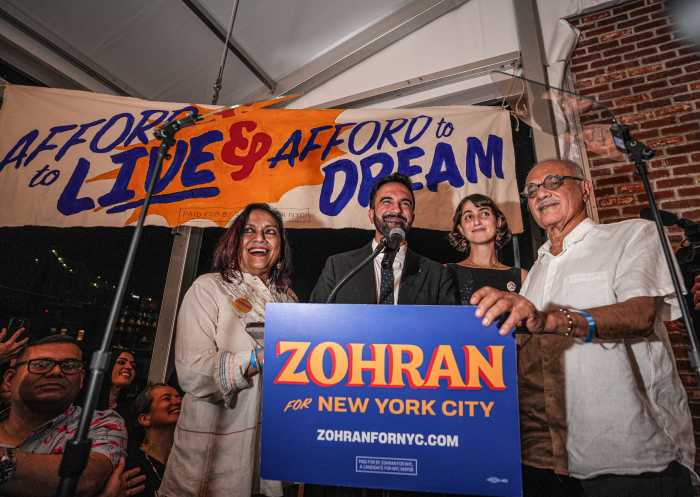No heat as the temperatures drop. No gas for cooking as the holidays approach. Water that only trickles from faucets drop by drop.
Just another day for many of the more than 400,000 residents of the New York City Housing Authority.
Now, after a federal judge rejected plans for a federal monitor for NYCHA, suggesting larger change was needed, the authority’s future is up in the air. NYCHA officials and federal prosecutors are tasked with trying to develop a larger, better plan by Dec. 14. It must say how the authority will be managed, what role federal authorities will play, and how the outrageously horrific conditions residents endure will be addressed.
At least one NYCHA problem was tackled last week when the same judge, William Pauley, agreed on a welcome plan regarding NYCHA’s handling of mold. Creeping mold on walls or even ceilings is a real problem for tenants with asthma and anyone who wants a clean space. The plan will require the creation of several new posts, including an independent ombudsman specifically on the mold issue, to handle the required clean-up, tenant complaints and concerns and oversight.
Now, NYCHA and federal officials must provide the same attention, urgency and specific action plans for the rest of the authority and every major problem it faces. Until recently, NYCHA has tried to ignore, challenge, understate, or cover up far too many of its problems. On lead paint found in complexes, NYCHA questioned results and findings when elevated levels were found in children’s blood. On heat, officials recently tried to downplay outages by saying they weren’t as bad as last year. Addressing the myriad problems inside and outside apartments, never mind the authority’s bureaucracy, culture, union rules and finances, will require broad strokes, tremendous oversight and a big role for the federal government.
Interim NYCHA Chairman Stanley Brezenoff promised new, invigorated leadership at the beleaguered authority. Particularly welcome is his renewed focus on and expansion of the Rental Assistance Demonstration program, which allows private property managers to undertake the renovations and management NYCHA apartments so desperately need, and the possibility of using air rights and building on unused land to generate funds. If the programs are established in true public-private partnership fashion, they could add desperately needed funds and provide faster and better maintenance.
But none of that will work if NYCHA, city officials and federal authorities don’t first determine how to move NYCHA forward, who will lead the efforts more permanently, and how much oversight will be applied. This isn’t the time for uncertainty or a gentle hand.





























